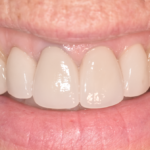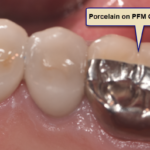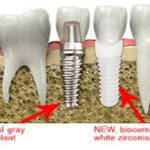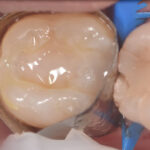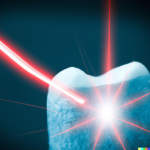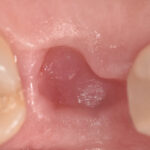What are my options for implants?
Implant posts are usually made with titanium, a metal that does not cause inflammation and is considered very biocompatible. In my opinion the cause of inflammation is microbes around the implants and in the bone.
Where titanium implants may be a problem is in terms of conductivity of electrical charges. Any time metal is placed in the mouth, the dentist should at least consider the electrical charges produced by that metal, also known as galvanic activity. Galvanism is recognized by the State Board of Dental Examiners here in CA. The more metal one has in one’s teeth, and specifically the more of different kinds of metals, the higher the galvanic charges produced.
In our practice galvanic readings with an FDA- approved device are taken for every patient with existing metal restorations at the initial exam, and existing patients are monitored as necessary. The result of these ongoing findings is that readings on implants are at the low end of the spectrum as compared with other metals.
There is some controversy as to whether zirconium implants are better than titanium implants. While they have not been available in the United States for long, they have been in use in Europe for quite a while.
Zircomium is known as Zr on the periodic table. Ceramic implants made of zirconium dioxide are still being explored as a substitute for those who are averse to metals, or feel that titanium may affect the energetic flows of the meridian systems. (While the element is called zirconium, the product is usually referred to as zirconia).
One of the best things about zirconia implants is that they are not a conductive of electrical charges, which research has shown can excite bacterial populations. Additionally there have been recent improvements in the technology of zirconium implants that make it a viable option.
Dr. Carey O’Rielly is a holistic dentist in San Diego, California who truly understands and practices the tenets of holistic health, both as a practitioner and in his personal life. His remarkable knowledge of the field came about through years of study and experience, initiated by his own work-related health challenges.

